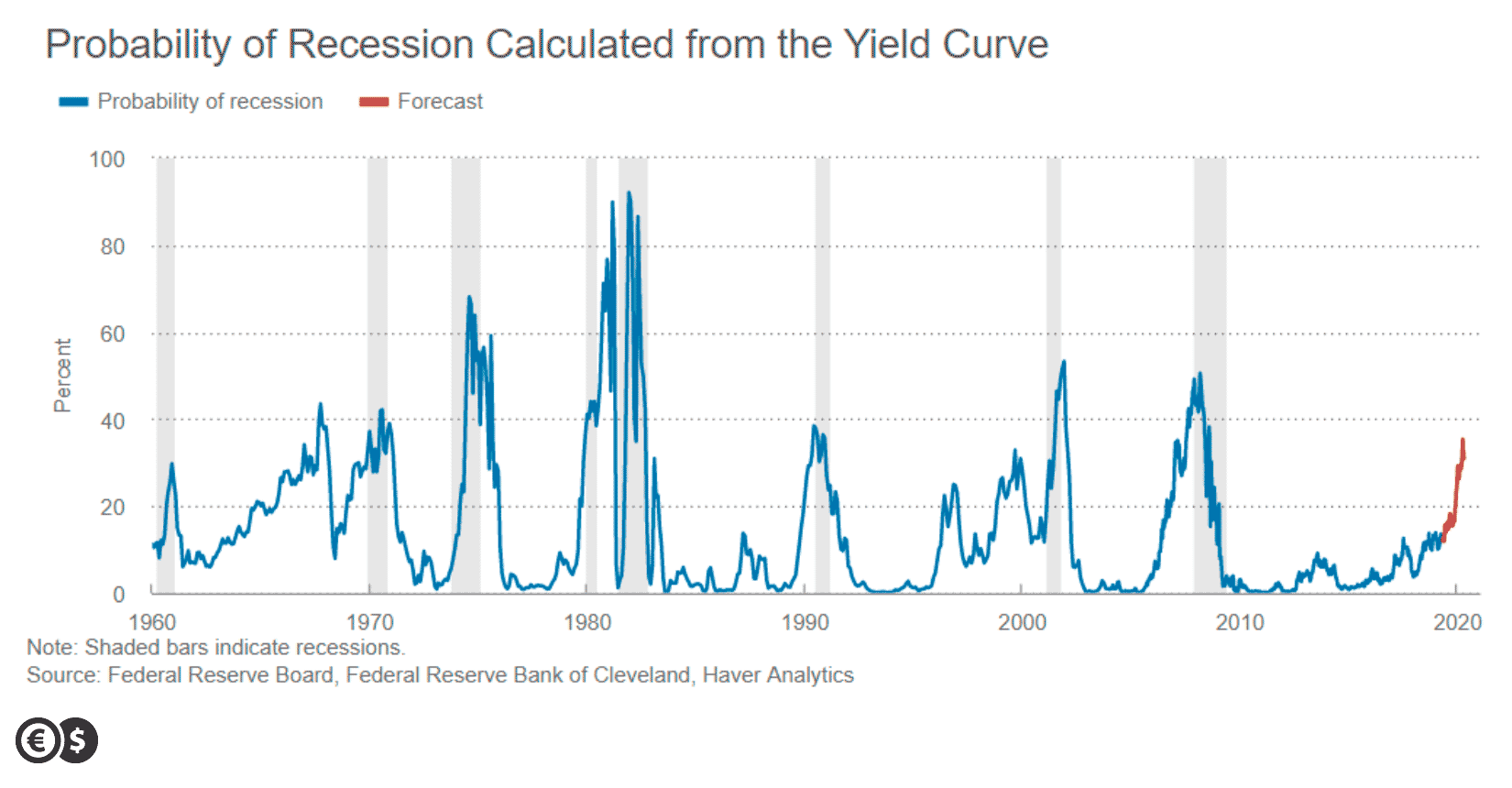On the markets, we can observe an increase in risk aversion and a return to safe haven, which may be translated mainly into an increase in the price of bonds with a simultaneous decline in their yields around the world. In addition, Japanese yen and Swiss franc gained in the morning, and futures contracts on stock indices declined.
It seems that concerns about global economic growth have increased due to the lack of progress in trade talks between the United States and China. The conflict escalates because China accused the US of abusing the national security exception in the WTO by cutting off Huawei Technologies from US suppliers and warned that this move could have serious consequences. As a result, the yield curve in the US could become more and more reversed. The difference between 3-month bills and 10-year bonds fell to minus 12 basis points. This is the lowest value since 2007. Theoretically, the more reversed the yield curve, the greater the risk of recession in the United States.

Source: clevelandfed.org
According to the calculations of the Federal Reserve of Cleveland, the probability of recession in the US increased to almost 40 percent in the first half of 2020.
Meanwhile, a week before the RBA decision on interest rates, yields on 10-year bonds of this country fell to the lowest level ever, and below the level of the main interest rate of 1.5 percent. JPMorgan Chase expects the RBA to cut the main interest rate from 1.5 percent by 1 percentage point by mid-2020, thus trying to raise inflation and employment.
Globally, as can be inferred from the market behavior, we are dealing with a bond phase of the economic cycle, which so far may not be favorable for the stock market until the risks for the global economy do not diminish.
Daniel Kostecki, Chief Analyst Conotoxia Ltd.
Materials, analysis and opinions contained, referenced or provided herein are intended solely for informational and educational purposes. Personal Opinion of the author does not represent and should not be constructed as a statement or an investment advice made by Conotoxia Ltd. All indiscriminate reliance on illustrative or informational materials may lead to losses. Past performance is not a reliable indicator of future results.
59% of retail investor accounts lose money when trading CFDs with this provider. You should consider whether you understand how CFDs work and whether you can afford to take the high risk of losing your money.


